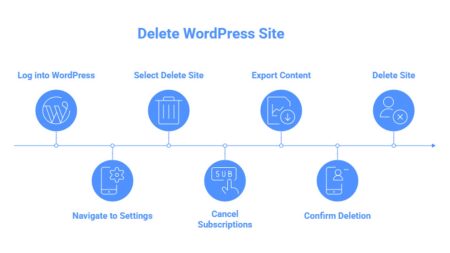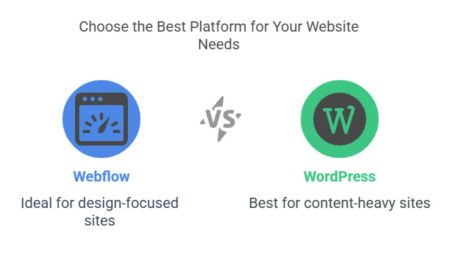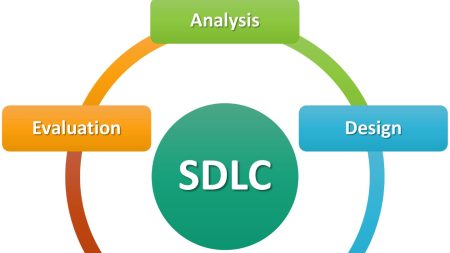Healthcare, as an industry, is not a one-size-fits-all affair. Each organization operates like a sprawling mosaic, blending unique pieces – patient needs, regulatory requirements, and operational goals. Enter custom healthcare software development, the tailored digital elixir shaping modern medical care. But what makes this route so pivotal? Let’s unravel the threads one by one.
What Is Custom Healthcare Software Development?
Custom healthcare software development is akin to commissioning a bespoke suit rather than settling for off-the-rack. It involves crafting software solutions precisely for healthcare organizations, addressing their specific workflows, data management needs, and patient care goals. Think of it as building a house. Would you trust a pre-built structure to weather a storm if it wasn’t designed for your environment? Likely not. Custom software allows healthcare providers to create systems that reflect their unique challenges and aspirations.
Why Not Off-the-Shelf?
Ever tried cramming a square peg into a round hole? That’s what many healthcare organizations experience with off-the-shelf solutions. These generic products may check a few boxes but often fall short when nuanced requirements emerge.
- Rigid Structure: Pre-packaged software offers limited flexibility. Imagine a hospital needing a module for telemedicine, only to discover it isn’t part of the standard package.
- Compliance Nightmares: HIPAA, GDPR, and other regulations cast a long shadow over healthcare IT. Generic systems may not account for every nuance, leading to costly compliance gaps.
- Scalability Constraints: Growth can overwhelm pre-built solutions. For instance, expanding clinics or integrating new departments often results in patchy implementations.
Custom medical software development transforms limitations into opportunities. It’s not about “making do.” It’s about getting it right.
Critical Features in Custom Healthcare Software
Crafting healthcare custom software development isn’t merely about digitizing paper trails. It’s about creating a symphony where every instrument (read: feature) plays harmoniously. Let’s delve into the essentials of custom healthcare systems.
Patient Portals
Patient portals simplify life. They empower users with access to medical records, appointments, and billing. Statistics indicate that 90% of patients want digital tools to engage with their providers. In custom healthcare software solutions, these portals are tailor-made, integrating seamlessly into the provider’s ecosystem.
EHR Integration
Electronic Health Records (EHRs) are the beating heart of modern medical operations. But the one-size-fits-all EHRs often feel like square wheels. With custom healthcare software development services, organizations create systems that cater to their clinical workflows, minimizing redundancies and maximizing efficiency.
Telemedicine
The telemedicine market surged 150% during the pandemic, revealing its staying power. Custom telehealth platforms ensure HIPAA compliance, user-friendly interfaces, and secure communication – features often lacking in cookie-cutter solutions.
Advanced Analytics
Custom developed software can crunch data like a high-powered juicer, extracting actionable insights. Whether it’s patient outcomes, resource allocation, or financial trends, advanced analytics provide a competitive edge.
Interoperability
Hospitals often juggle a circus of legacy systems. Custom medical software acts as the ringmaster, enabling seamless communication across disparate platforms.
The Development Journey
Rome wasn’t built in a day, and neither is custom software. Here’s how a custom healthcare software development company typically approaches the task:
- Discovery and Analysis. Picture a chef meticulously sourcing ingredients. This phase identifies an organization’s pain points, compliance needs, and operational goals.
- Design. This step creates the blueprint. UX/UI experts ensure the software is as intuitive as it is functional.
- Development. Developers roll up their sleeves to bring the vision to life. Agile methodologies often guide this phase, allowing iterative improvements.
- Testing. In the medical world, errors are not mere glitches – they’re risks. Rigorous testing ensures the software runs smoothly and securely.
- Deployment and Maintenance. Finally, the software launches. But the story doesn’t end here. Ongoing updates and support keep the system shipshape, adapting to evolving needs.
The Dollars and Sense of It All
Custom medical software development services are often seen as expensive, but consider this: The global healthcare IT market was valued at $326 billion in 2021 and is expected to grow at a CAGR of 20.3% until 2030. Organizations investing in custom healthcare software development services frequently save more in the long run through improved efficiency and patient satisfaction. Moreover, cost overruns in healthcare IT often stem from poor fit and excessive customization of off-the-shelf solutions. When a system doesn’t align with workflows, downtime, retraining, and workarounds become costly drains.
Challenges in Custom Medical Development
Of course, no rose is without its thorns. Challenges abound, but each is surmountable with strategic planning.
Regulatory Compliance
Healthcare is one of the most heavily regulated sectors. Developers must weave compliance into every line of code, from HIPAA to data sovereignty laws.
Stakeholder Buy-In
Convincing decision-makers to opt for a custom solution can be like herding cats. Clear ROI projections and pilot programs often win skeptics over.
Integration Complexity
Legacy systems often resemble tangled Christmas lights – difficult to unravel. Custom healthcare software development services must prioritize interoperability to sidestep integration woes.
Trends in Custom Healthcare Software Development
The industry isn’t static; it evolves like a living organism. Here are some trends to watch.
AI-Driven Solutions
AI isn’t just a buzzword; it’s revolutionizing diagnostics, workflows, and patient monitoring. Custom solutions can harness AI to tailor algorithms to specific organizational needs.
Blockchain for Security
Data breaches cost healthcare $10.1 million on average per incident. Blockchain ensures data integrity and transparency, making it an appealing addition to custom solutions.
IoT Integration
Wearables and IoT devices generate a goldmine of data. Custom software can collect, analyze, and act on this information, enhancing patient care.
Cloud Migration
Cloud-based systems offer scalability and resilience. Many organizations are building hybrid models combining local systems with cloud capabilities.
How Is Software Development Beneficial in Healthcare?
- Enhanced Patient Care: Custom healthcare software can streamline patient care by improving data accuracy, reducing administrative redundancy, and facilitating faster and more precise diagnoses. This contributes to improved patient outcomes and satisfaction.
- Improved Data Management: The use of software solutions in healthcare enables efficient data management. Electronic health records (EHRs) and other digital tools allow for easy storage, retrieval, and analysis of patient data.
- Cost Efficiency: Through automation and process optimization, custom software development for healthcare can drastically reduce operational costs, resulting in significant savings for healthcare organizations.
- Regulatory Compliance: Custom healthcare software can be designed to adhere to specific regulatory standards, ensuring organizations stay compliant with laws and guidelines.
- Interoperability: Custom healthcare software development solutions can integrate various systems and applications, promoting interoperability among different healthcare systems and enabling seamless data exchange.
- Remote Care: With telemedicine software, healthcare providers can offer remote care services, allowing patients to obtain medical advice and treatment from home.
- Predictive Analysis: Use of Artificial Intelligence and machine learning in custom healthcare software can enable predictive analysis, which helps in the early detection of diseases and risk factors, leading to timely and targeted interventions.
Picking the Right Development Partner
Selecting a custom healthcare software development company is no less critical than choosing a surgeon. Here’s a checklist:
- Experience: How familiar is the company with healthcare regulations and standards?
- Portfolio: Do they have a track record of successful projects in the industry?
- Communication: Is the team accessible and transparent throughout the process?
- Support: What happens post-deployment? Maintenance should be part of the package.
Why is It Better to Outsource Custom Healthcare Software Development?
Outsourcing custom medical software development has emerged as a practical and cost-effective strategy for many healthcare organizations. By delegating the task to specialized software development company, they can leverage external expertise while focusing on their primary healthcare services. Here are five reasons why outsourcing healthcare custom software development is a smart move:
- Expertise and Experience: Outsourcing companies specialize in software development and often possess vast experience in creating healthcare solutions. They are familiar with the industry’s latest technologies, regulations, and best practices.
- Cost-Effective: Custom software development outsourcing can be a more economical choice as it eliminates the need to invest in infrastructure, hire and train in-house developers, and manage employee benefits and salaries.
- Quality Assurance: Reputable custom healthcare software development service has dedicated quality assurance teams that rigorously test every aspect of the software to ensure its functionality, reliability, and ease of use.
- On-Time Delivery: Outsourcing providers have a structured workflow that enables them to deliver projects on time, ensuring that your healthcare services are not disrupted due to delayed software development.
- Support and Maintenance: Outsourcing firms not only develop your software but also provide post-deployment support and maintenance, ensuring your software stays up-to-date and continuously meets the needs of your organization as it evolves, as well as the needs of your patients.
The Road Ahead
In a world of shifting sands, custom healthcare software development is a lighthouse guiding healthcare organizations to stability and innovation. Whether it’s a rural clinic or a sprawling urban hospital, bespoke solutions unlock potential, turning everyday hurdles into milestones of progress. The choice isn’t merely about technology. It’s about charting a future where healthcare meets the needs of the individual rather than forcing the individual to conform to a system. After all, when it comes to patient care, isn’t customization the least we can do?











